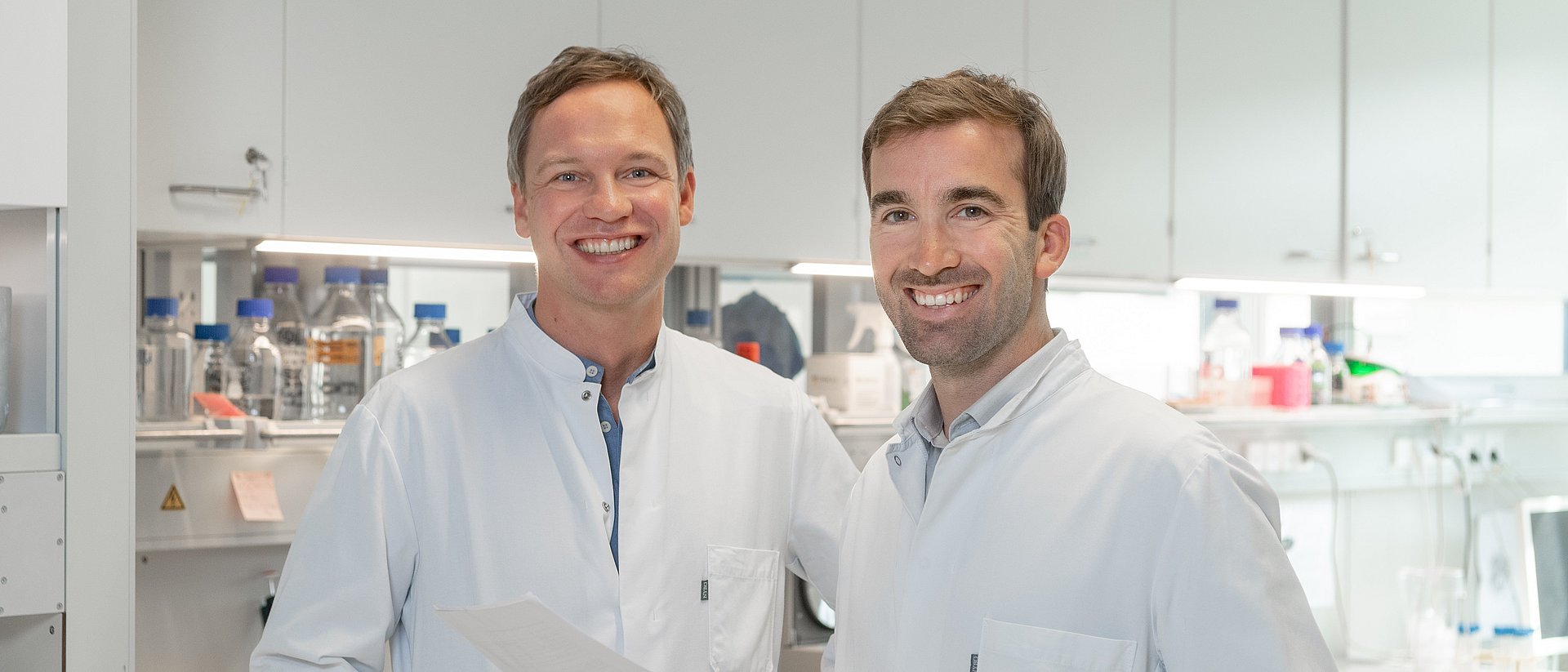Cancer: important reason for poor response to checkpoint inhibitors identified
Inactive receptor renders immunotherapies ineffective

An overactive immune system can be nearly as dangerous as an inactive one, triggering inflammation that attacks the body’s own tissues. To counter this, the immune system has what are known as checkpoint molecules, which, when switched on, act like a brake on the immune system. However, cancer cells can exploit this mechanism: by switching on their checkpoint molecules, they are able to elude attacks by the immune system. The weakened immune response that results is then no longer robust enough to fight off the cancer cells.
A new approach to cancer therapy therefore involves the use of drugs known as checkpoint inhibitors. These substances release the “brake” applied by cancer cells, thus restoring the immune system’s ability to combat cancer. Checkpoint inhibitors are already being used successfully in skin cancer and many other malignancies.
The RIG-I receptor is a key factor
“Unfortunately, checkpoint inhibitors aren’t effective in all patients. Thanks to our recent study, we now understand why that is the case in some forms of cancer, and using experimental approaches, we have even been able to reverse the situation,” says Dr. Simon Heidegger, researcher in Medical Unit III at TUM’s university hospital rechts der Isar and lead author of the paper published in Science Immunology.
RIG-I is a receptor protein that is known to play a role in the body’s defense against viruses. Heidegger and a team headed by his colleague Dr. Hendrik Poeck have now discovered that RIG-I also plays a key role in cancer control. In a number of mouse models for skin, pancreatic and bowel cancer, they showed that mice with cancer cells in which RIG-I is active responded much better to checkpoint inhibitors than mice with RIG-I-inactive cancer cells. Fortunately, a drug already exists that activates RIG-I, and it is already undergoing initial tests in clinical trials with humans. The team has used it successfully in mouse models. Mice that received the drug responded significantly better to treatment with checkpoint inhibitors.
Human skin cancer samples confirm the findings
The team then studied around 450 tissue samples from skin cancer patients to retroactively determine what effect RIG-I activity in the patients’ cancer cells had on their survival. In cases where RIG-I was active, the patients lived significantly longer despite their cancer. The team showed in 20 tested individuals that such patients also responded better to treatment with checkpoint inhibitors.
The researchers now plan to confirm their findings in large-scale trials on patients. “We hope to be able to use RIG-I as a marker as well for predicting how well a patient is likely to respond to therapy. This would avoid unnecessary treatments,” says Heidegger. In addition, they plan to test drugs that activate the RIG-I signal pathway in other mouse models and to investigate the effects of additionally administered checkpoint inhibitors.
S. Heidegger, A. Wintges, F. Stritzke, S. Bek, K. Steiger, P.-A. Koenig, S. Göttert, T. Engleitner, R. Öllinger, T. Nedelko, J. C. Fischer, V. Makarov, C. Winter, R. Rad, M.R.M. van den Brink, J. Ruland, F. Bassermann, T. A. Chan, T. Haas, H. Poeck, "RIG-I activation is critical for responsiveness to checkpoint blockade", Science Immunology, September 2019, DOI: 10.1126/sciimmunol.aau8943.
Simon Heidegger has been awarded the 2019 Vinzenz Czerny Prize of the German Society of Hematology and Oncology (DGHO) for his work in this study and other research. The award recognizes young scientists under 40 years of age who have achieved outstanding results in clinical, experimental or theoretical research in the field of oncology.
- Vinzenz-Czerny-Preis der DGHO
- Immune Regulation in cancer and stem cell transplantation Working Group
High-resolution images:
Technical University of Munich
Corporate Communications Center
- Vera Siegler
- presse@tum.de
- Teamwebsite
Contacts to this article:
PD Dr. med. Simon Heidegger
Medical Unit III
Klinikum rechts der Isar der TUM
Tel: +49 89 4140 8303
simon.heidegger@tum.de
PD Dr. med. Hendrik Poeck
Medical Unit III
Klinikum rechts der Isar der TUM
Tel: +49 89 4140 8065
hendrik.poeck@tum.de